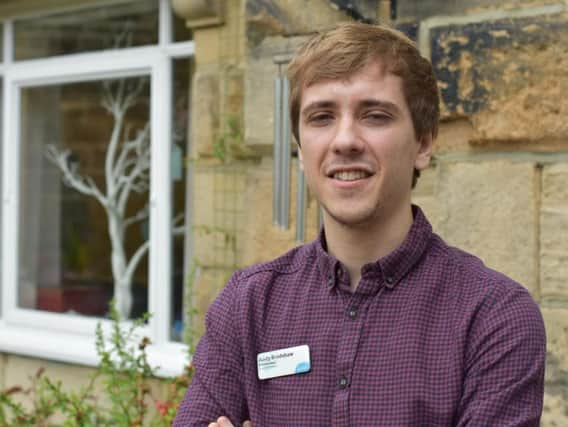University of Leeds student on the benefits of Tai Chi at Sue Ryder hospice


University of Leeds’ Andy Bradshaw has been helping in the day therapy unit at Sue Ryder Wheatfields Hospice, in Headingley, for the three years.
The facility runs a programme to help patients living with illness improve their quality of life, and Tai Chi is one of the activities.
Advertisement
Hide AdAdvertisement
Hide AdOriginally developed as a martial art in 13th-century China, Tai Chi is now practised around the world as a health-boosting exercise.
Mr Bradshaw said that what struck him most during his time at the hospice is “how terminal illness represents an opportunity for growth and enrichment”.
He added: “A key facet of palliative care is rehabilitation. This uses physical therapies, such as exercise and other physical activity, to preserve patients’ quality of life through empowering them in adapting to, and coping with, illness-related issues.
“Taking part in Tai Chi, however, is a way through which patients can improve their perceptions of quality of life through gaining respite from the physical and psychological distress of their illness.
Advertisement
Hide AdAdvertisement
Hide Ad“This is because the gentle movements, music, and imagery of Tai Chi enabled them to re-direct their awareness away from thinking about their worries and fears and onto being present in the moment.”
Kate Bratt-Farrar, hospice director at Sue Ryder Wheatfields Hospice, said: “For 40 years our doctors, nurses and carers have given people the compassion and expert care they need to help them live the best life they possibly can”.